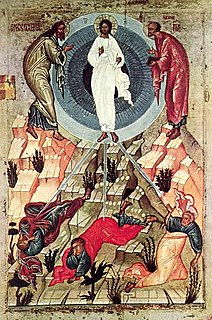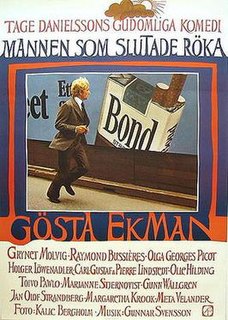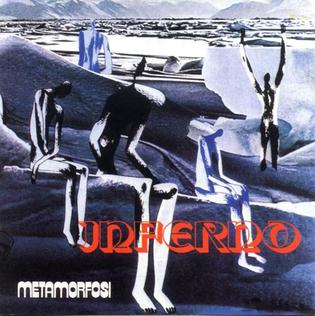Metamorfosi are an Italian symphonic rock band from Rome.
They have released four studio albums, ...E Fu Il Sesto Giorno (1972), Inferno (1973), Paradiso (2004), and Purgatorio (2016). The three latter are concept albums based on Dante's The Divine Comedy . Inferno in particular has received critical acclaim among progressive rock fans.
The band was formed in the end of the 1960s, when the singer Jimmy Spitaleri joined the Christian beat group "I frammenti". After some first records and exhibitions, in 1972 they released their first album "... E fu il sesto giorno", characterised by late beat rock influences and spiritual lyrics. In 1973 they published "Inferno", their most successful record, a concept album inspired by Dante's Divine Comedy. They style is now totally oriented to the symphonic progressive rock, dominated by Enrico Olivieri's organ and synthesisers.

Dante Alighieri, probably baptized Durante di Alighiero degli Alighieri and often referred to simply as Dante, was an Italian poet, writer and philosopher. His Divine Comedy, originally called Comedìa and later christened Divina by Giovanni Boccaccio, is widely considered one of the most important poems of the Middle Ages and the greatest literary work in the Italian language.

The Divine Comedy is an Italian narrative poem by Dante Alighieri, begun c. 1308 and completed in 1320, a year before his death in 1321. It is widely considered the pre-eminent work in Italian literature and one of the greatest works of world literature. The poem's imaginative vision of the afterlife is representative of the medieval worldview as it had developed in the Western Church by the 14th century. It helped establish the Tuscan language, in which it is written, as the standardized Italian language. It is divided into three parts: Inferno, Purgatorio, and Paradiso.
Allen Mandelbaum was a Jewish American professor of literature and the humanities, poet, and translator from Classical Greek, Latin and Italian. His translations of classic works gained him numerous awards in Italy and the United States.

Purgatorio is the second part of Dante's Divine Comedy, following the Inferno and preceding the Paradiso. The poem was written in the early 14th century. It is an allegory telling of the climb of Dante up the Mount of Purgatory, guided by the Roman poet Virgil—except for the last four cantos, at which point Beatrice takes over as Dante's guide. Allegorically, Purgatorio represents the penitent Christian life. In describing the climb Dante discusses the nature of sin, examples of vice and virtue, as well as moral issues in politics and in the Church. The poem posits the theory that all sins arise from love – either perverted love directed towards others' harm, or deficient love, or the disordered or excessive love of good things.
A Symphony to Dante's Divine Comedy, S.109, or simply the "Dante Symphony", is a choral symphony composed by Franz Liszt. Written in the high romantic style, it is based on Dante Alighieri's journey through Hell and Purgatory, as depicted in The Divine Comedy. It was premiered in Dresden in November 1857, with Liszt conducting himself, and was unofficially dedicated to the composer's friend and future son-in-law Richard Wagner. The entire symphony takes approximately 50 minutes to perform. It premiered on 7 November 1857.

In Dante's Inferno, contrapasso is the punishment of souls "by a process either resembling or contrasting with the sin itself." A similar process occurs in the Purgatorio.
Jimbo's Inferno is a 2006 graphic novel created by Gary Panter and published by Fantagraphics Books. The "inferno" is a Los Angeles mall named Focky Bocky.

The Divine Comedy has been a source of inspiration for artists, musicians, and authors since its appearance in the late 13th and early 14th centuries. Works are included here if they have been described by scholars as relating substantially in their structure or content to the Divine Comedy.

Purgatorio is a studio album and the seventy-eighth release overall by electronic band Tangerine Dream. It was released in October 2004. A pre-release version was only available via internet at the Tangerine Dream's website in March 2004. The album includes a studio version of a live performance at the Royal Festival Hall, in London, on March 6, 2004. The show was the opening night of the Ether Electronic Music Festival followed by the world premiere of a restored version of the Italian silent movie “Purgatorio” from 1911 by Giuseppe de Liguoro's, based on the second part of Dante Alighieri’s “Divine Comedy”

The Man Who Quit Smoking is a 1972 Swedish comedy film directed by Tage Danielsson, starring Gösta Ekman, Grynet Molvig, Carl-Gustaf Lindstedt and Gunn Wållgren. The film is known as a Hasse & Tage film and is a great cult classic in Sweden.
Thomas William Parsons was an American dentist and poet.

Yesterdays is a Hungarian symphonic progressive rock band based in Cluj Napoca, Romania.

Paradiso is the third and final part of Dante's Divine Comedy, following the Inferno and the Purgatorio. It is an allegory telling of Dante's journey through Heaven, guided by Beatrice, who symbolises theology. In the poem, Paradise is depicted as a series of concentric spheres surrounding the Earth, consisting of the Moon, Mercury, Venus, the Sun, Mars, Jupiter, Saturn, the Fixed Stars, the Primum Mobile and finally, the Empyrean. It was written in the early 14th century. Allegorically, the poem represents the soul's ascent to God.

Dante XXI is the tenth studio album by the Brazilian metal band Sepultura, released in 2006 through SPV Records. It is a concept album based on the three sections of Dante Alighieri's The Divine Comedy; Inferno (hell), Purgatorio (purgatory) and Paradiso (paradise). This is the last album to feature Igor Cavalera on drums.

Richard Philip Henry John Benson was a British-Italian guitarist, singer and television personality.

Inferno is the second studio album by the Italian progressive rock band Metamorfosi. It was released in 1973.

Inferno is the seventy-third release and twelfth live album by German electronic group Tangerine Dream. It is the first live album to feature new compositions since 220 Volt Live (1993). The lyrical content is based on the first part of the Italian narrative poem Divine Comedy by Dante Alighieri. Inferno is the first album to feature percussionist Iris Camaa who remained with the group until 2014.

Beatrice d’Este was an Italian noblewoman, now primarily known for Dante Alighieri's allusion to her in Purgatorio, the second canticle of the Divine Comedy. Through her first marriage to Nino Visconti, she was judge (giudichessa) of Gallura, and through her second marriage to Galeazzo I Visconti, following Nino’s death, lady of Milan.
Robert B. Hollander Jr. was an American academic and translator, most widely known for his work on Dante Alighieri and Giovanni Boccaccio. He was described by a department chair at Princeton University as "a pioneer in the creation of digital resources for the study of literature" for his work on the electronic Princeton and Dartmouth Dante projects. In 2008, he and his wife, Jean Hollander, co-received a Gold Florin award from the City of Florence for their English translation of Dante's Divine Comedy.